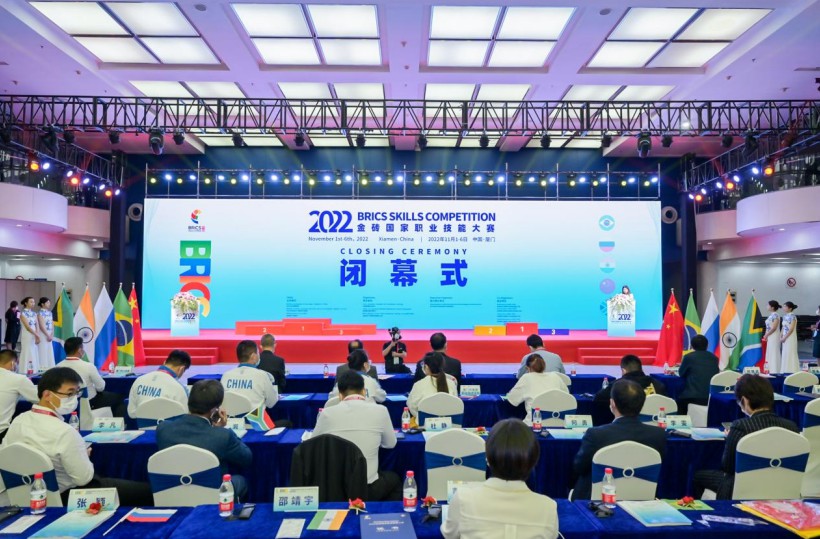
The closing ceremony of the final round of the 2022 BRICS Skills Competition was successfully held at the Xiamen International Convention and Exhibition Center at 19:00 on the evening of November 6, marking the successful conclusion of this year's competition.
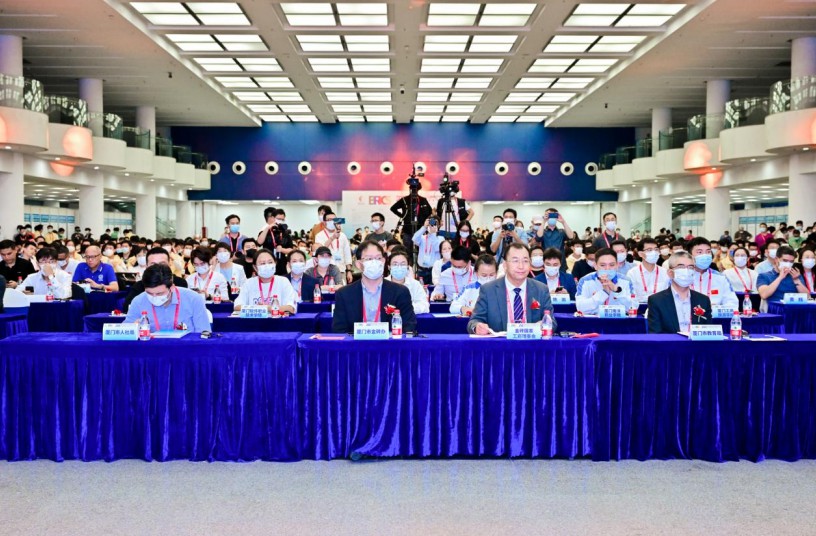
Huang Feng, Executive Deputy Director of Xiamen BRICS Office, Liu Zhenying, Chairman of the Skills Development Working Group of the BRICS Business Council and President of Xiamen BRICS Future Institute of Skills Development and Technological Innovation, Hong Jun, Deputy Director of Xiamen Education Bureau, and Peng Xinliang, Deputy Director of Xiamen Human Resources and Social Welfare Bureau, were present at the closing ceremony. Representatives of the BRICS Business Council National Skills Development Working Group and expert representatives of the participating delegations from BRICS countries attended the closing ceremony. Participating experts, competitors and representatives of educational institutions from BRICS countries attended the closing ceremony remotely in an online format. Nearly 2.1 million people from 23 countries and regions, including Brazil, Russia, India, China, South Africa, the United States, the United Kingdom, France, Germany, Canada, the Netherlands, New Zealand, South Korea, Belarus, Japan, Turkey, Singapore, Sweden, Venezuela, Nigeria, Ireland, the Philippines and Laos watched the event via live streaming. Nearly 2.1 million people watched the event via live broadcas.
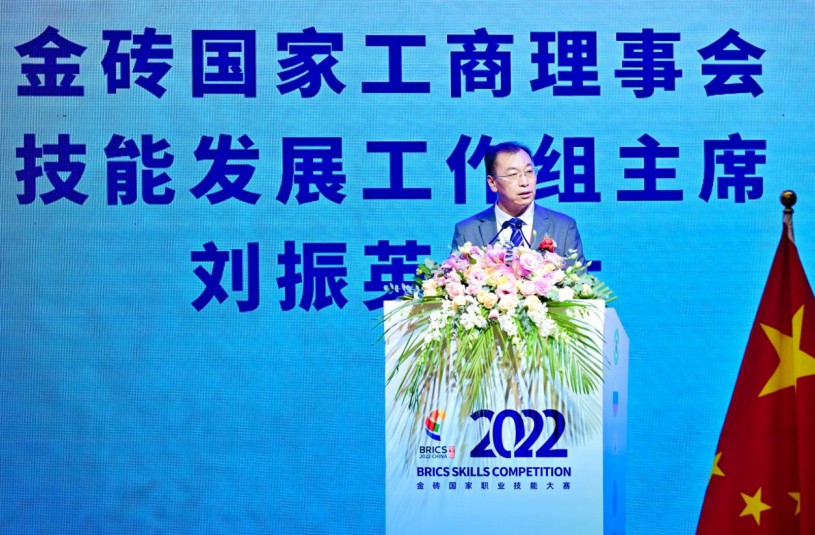
Liu Zhenying, Chairman of the BRICS Business Council Skills Development Working Group and President of the Xiamen BRICS Future Institute of Skills Development and Technological Innovation, made a closing speech. He said that in order to better integrate the competition with talent training, the organizing committee organized the chief experts of each event, judges and experts from participating institutions to participate in the formulation of international group skill standards and curriculum development for the BRICS Vocational Skills Competition in terms of competition regulations, sample questions, scoring standards, competition platforms, technical support, etc., and formed a preliminary draft of international group competition standards for 28 events. The training content of the international training camp was formed on the basis of which the training content of the international training camp was successfully completed before the competition. The competition promoted the harmonization of future skill standards of the BRICS countries and laid a solid foundation for the formation of BRICS skill certification system and issuance of skill passports in the future.
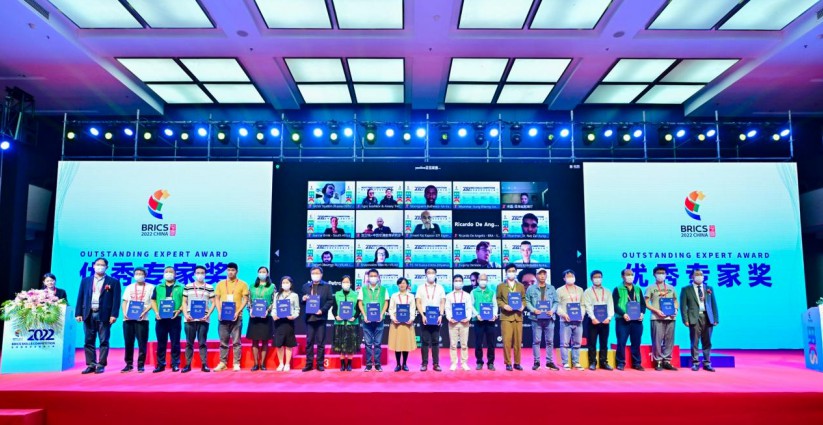
The final received 3,585 international teams from Brazil, Russia, India, South Africa, Ghana, Nigeria, Myanmar, Zimbabwe and other countries, as well as 6,282 domestic teams from 31 provinces in China registered, and 1,691 teams entered the final. More than 4,800 participating experts, players, technical support and other staff on site attended the event. After three days of fierce competition, the list of winning teams of 26 events in the final of 2022 BRICS Vocational Skills Competition was finally announced. A grand award ceremony was held at the closing ceremony. The Chinese team won 79 medals and ranked first in the medal list; the Russian and Indian teams took the second and third places with 38 and 12 medals. Other countries won 10 medals: South Africa, Brazil 7 medals, Ghana 2 medals, Mongolia 1 medal. Among them, the team from Xiamen City Vocational College won the gold medal in "Computer Vision Application of Artificial Intelligence".
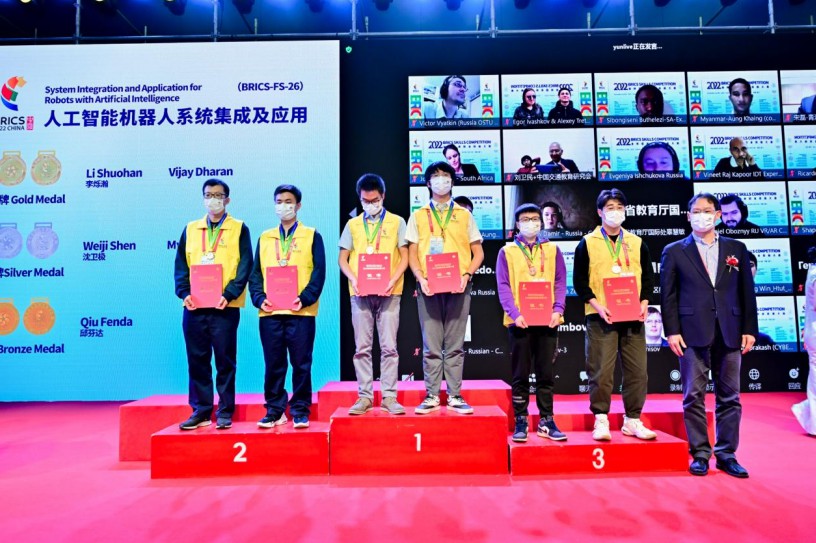
The final has achieved a number of results and breakthroughs. First, the international remote distributed competition model was adopted, successfully creating an example of international competition in the post epidemic era. The final adopted the mode of establishing international remote distributed competition venues in each participating country, i.e. each participating country set up offline competition venues and organized its own players to participate in the competition. In order to ensure the fairness, openness and impartiality of the competition, the competition platform adopts advanced technologies such as serverless architecture, data isolation, encrypted transmission, authentication certificate access, remote desktop monitoring, etc. to ensure the stability and security of the competition. Each event adopts intensive one-to-one remote refereeing, requiring players to participate in the competition process in full accordance with the instructions of the remote referee norms, before and after the race position to set up two cameras, screen full video to ensure the fairness of the competition, opening up a new path of international competitions.
Secondly, through the development of group skill standards, the mutual recognition of group standards among BRICS countries will be realized. Before the official start of the finals, the BRICS Business Council Skills Development Working Group, the organizer of the competition, and the Xiamen BRICS Future Skills Development and Technology Innovation Institute, the executive organizer of the competition, organized experts from Brazil, Russia, India, China and South Africa to carry out the standard-setting work, and experts from all competitions completed the international group skills standard-setting for the 28 competitions in the spirit of rigorousness, science and fairness, and in the spirit of hard work, practicality and efficiency. The international group skill standardization was completed for 28 competitions in the spirit of hard work, practicality and efficiency. According to the skill standards of the competitions, the expert teams of the five BRICS countries and the teachers of the universities jointly designed and built a perfect curriculum and training system, which provides a high-quality international model for the training of skilled talents in the BRICS countries.
Thirdly, online remote international training camps were organized to comprehensively improve the skill level of participants. Before the finals, 26 competitions organized remote international training camps for participating experts and players to conduct pre-competition training to help participants familiarize themselves with the competition rules and regulations, and better prepare for the finals through simulated competition training. According to statistics, the training hours of the international training camps for the 26 final competitions totaled 335 hours, and nearly 4,000 people from Brazil, Russia, India, South Africa, Belarus, Ghana, Nigeria, Myanmar and Zimbabwe participated in the training.
Fourthly, a "skills passport" will be issued to link up the flow of talents in the BRICS countries. Eligible winners of the competition will have the opportunity to obtain a "skills passport" issued by the BRICS Business Council's Skills Development Working Group. After standardized training, assessment and evaluation that are mutually recognized by the BRICS countries, professionals holding the "Skills Passport" can work in related fields in the BRICS countries, and their technical competence level is mutually recognized by the BRICS industries. The "Skills Passport" program, as an important outcome design proposed by the Russian Skills Working Group of the BRICS Business Council in 2018, was initiated by the Russian Skills Group and the Chinese Skills Group, and both sides reached a cooperation agreement to take the lead in the issuance of the program in the relevant skill areas in Russia and China. The program has been in operation for five years and has been awarded to tens of thousands of skilled personnel in Russia and China.
Fifthly, a digital information platform was adopted to analyze and evaluate the Competition. The organizing committee of the competition adopted a professional digital information platform to carry out all-round, whole-process integrated management of the competition. Through the information platform, it has completed a series of business work such as question bank collection, live training and online scoring for 28 events, so as to better analyze and assess the skill level of participating experts and players, as well as the development of related technical skills in vocational education in BRICS countries, and provide a strong basis and reference for the transformation and upgrading of vocational skills education in BRICS countries.
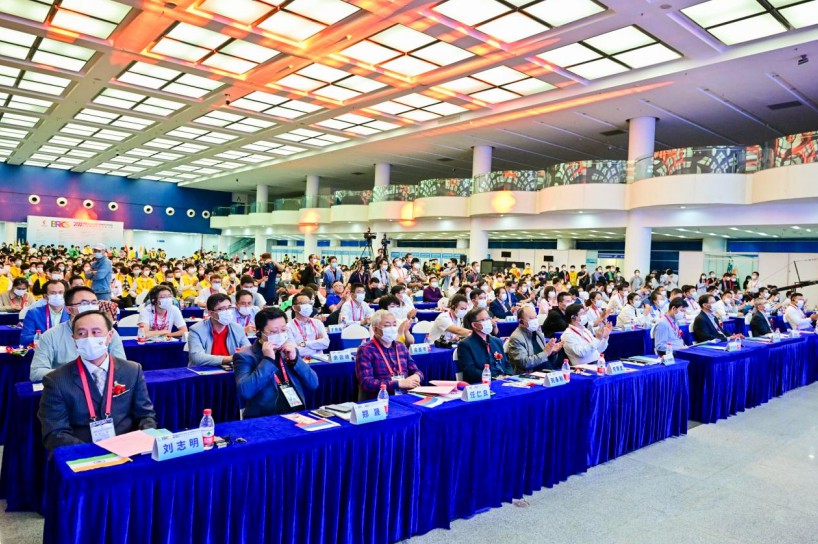
The competition received strong support from the education departments of all provinces (autonomous regions and municipalities). The closing ceremony invited to the Xinjiang Uygur Autonomous Region Department of Education, deputy secretary of the party group, the director of the Aini play - Ibrahim, Qinghai Provincial Department of Education, member of the party group, deputy director of the Song Lei, Anhui Provincial Committee of the Working Committee on Education, deputy director of the Provincial Department of Education, Chu Changlian, deputy director of the Department of Education in Hebei Province, Hou Jianguo, deputy director of the Department of Vocational and Adult Education of the Department of Education of Shanxi Province, the Department of Education of Henan Province, the Department of Foreign Cooperation and Exchanges, the Institute of Educational Research of Chongqing Municipality, Institute of Vocational Education and Adult Education, Vocational Education Division of Jiangsu Provincial Department of Education, Deputy Director of Vocational Education Division of Shanghai Municipal Education Commission, Heilongjiang Provincial Vocational Institutes Internship Training Teaching (Education) Steering Committee, Vocational and Adult Education Division of Yunnan Provincial Department of Education, and other leaders on the line attended.
The 2022 BRICS Vocational Skills Competition is co-organized by the Ministry of Education, the Ministry of Human Resources and Social Affairs, the BRICS Business Council and the Xiamen Municipal People's Government, and is aimed at implementing the initiative of President Xi Jinping at the thirteenth meeting of the BRICS leaders to hold the BRICS Vocational Skills Competition and to set up a platform of exchanges and cooperation among vocational colleges and enterprises in the five countries. The competition focuses on key areas such as intelligent manufacturing, digital economy, new industries, new forms of business, new technologies, etc., and promotes training through "competition for training", "competition for learning", "competition for training" and "competition for reform". Through "competition for training", "competition for learning", "competition for training" and "competition for reform", the organizer will build an international exchange platform for technical skills competitions, and strengthen practical cooperation in the field of vocational skills education among BRICS and other emerging markets and developing countries.
In the future, the Skills Development Working Group of the BRICS Business Council will deepen the integration of industry and education in vocational and technical education, cultivate professionals adapted to the needs of the development of a skill-based society, encourage skillful talents to climb up the ladder and innovate, and push forward the high-quality development of vocational education in the BRICS countries through a series of measures, such as carrying out the BRICS Competition, setting up the BRICS Skills Standardization Working Committee, organizing the BRICS Lecture Hall on Skills Development and Technological Innovation, and building the BRICS Training Base for Future Skills and the BRICS Research Institute for Skills Development and Technological Innovation.
赛场花絮图片
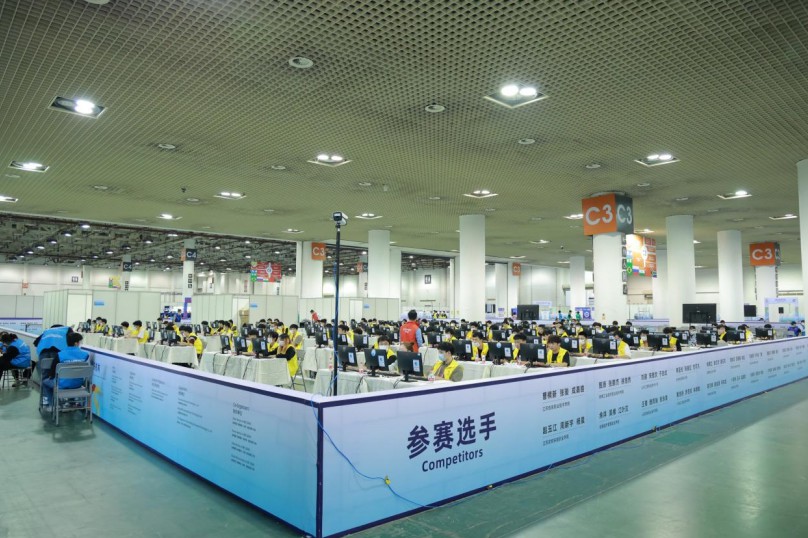
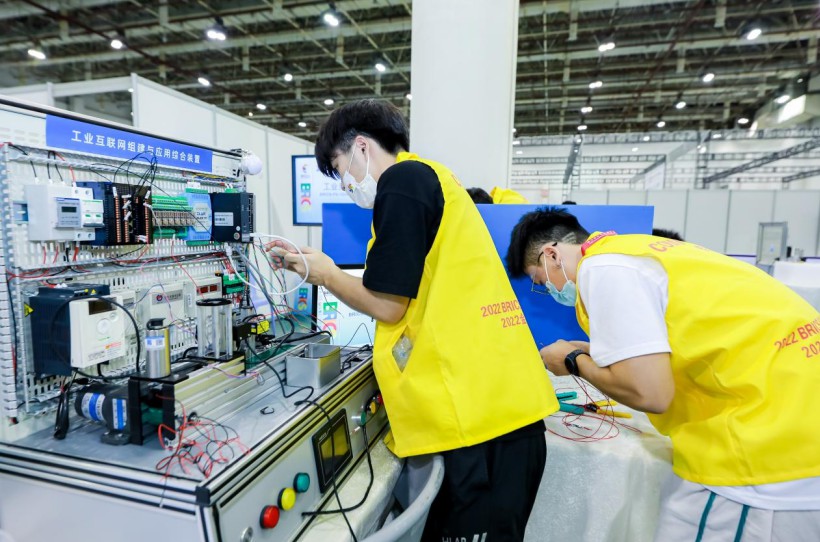
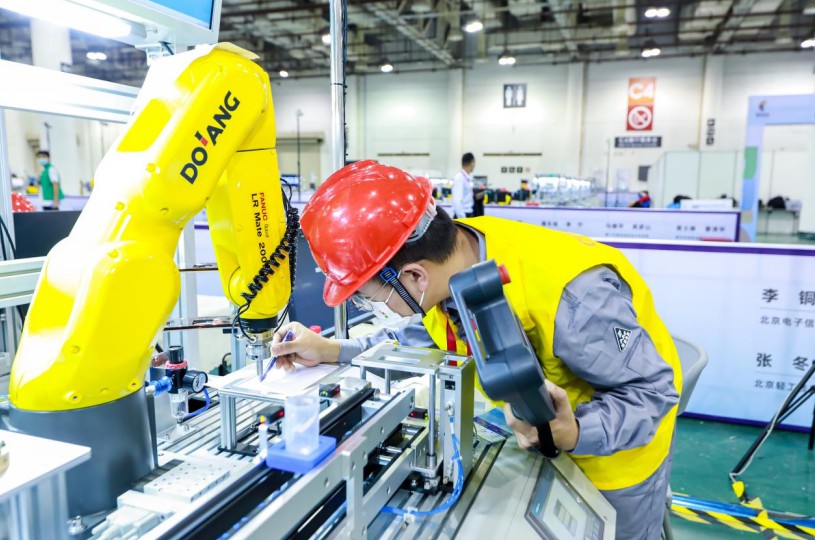
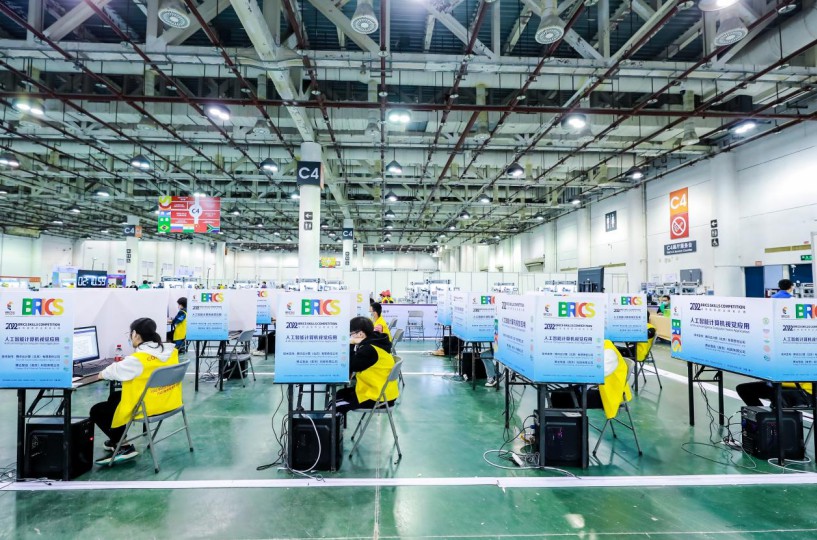
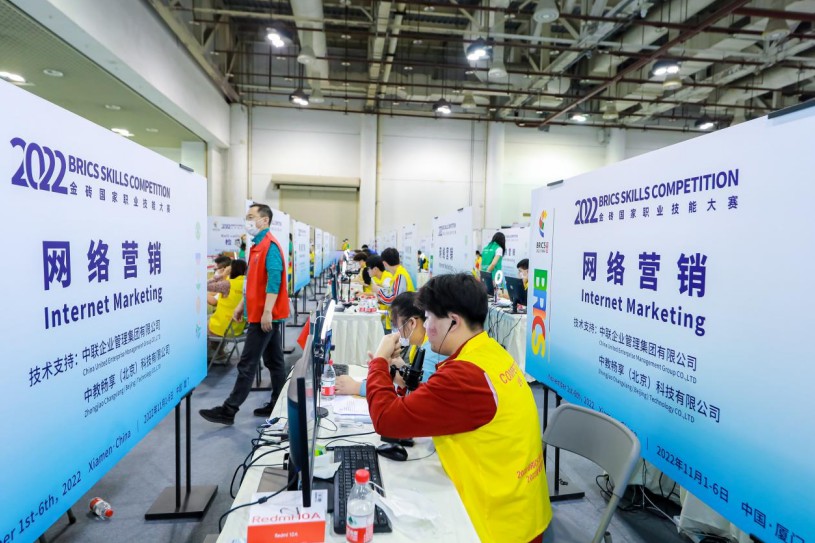
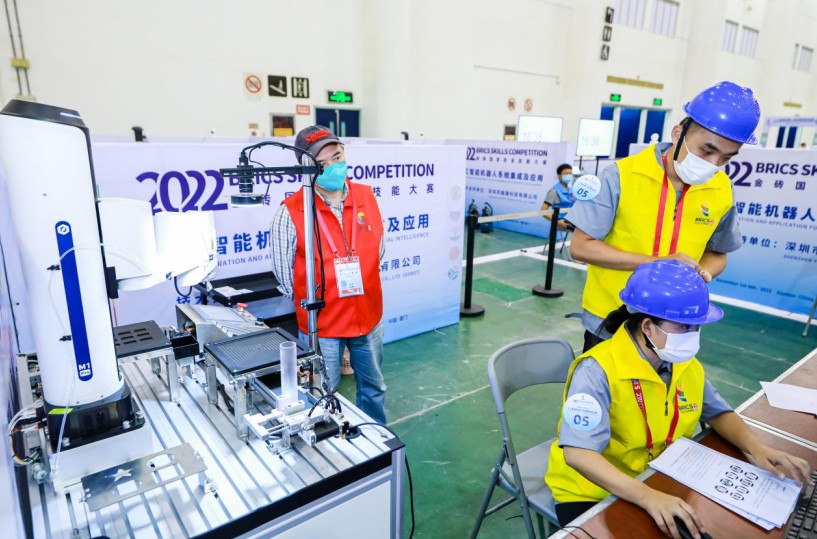
Related Reading
推荐文章
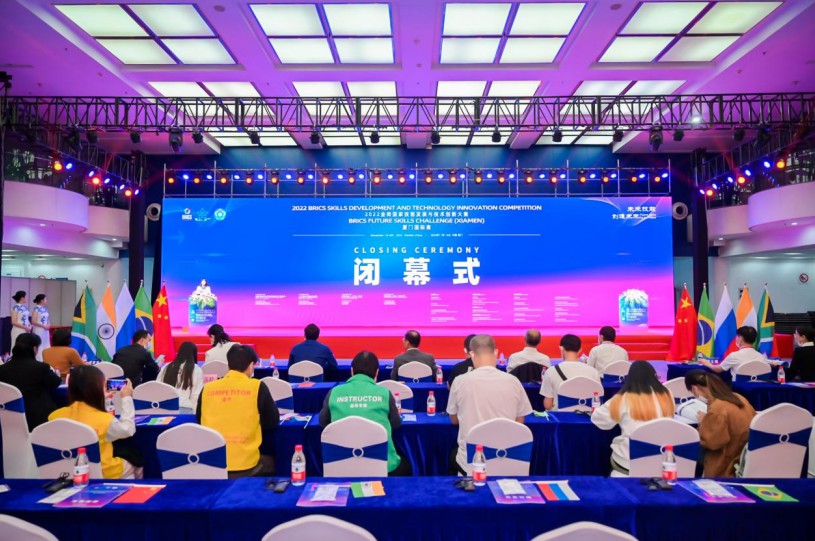

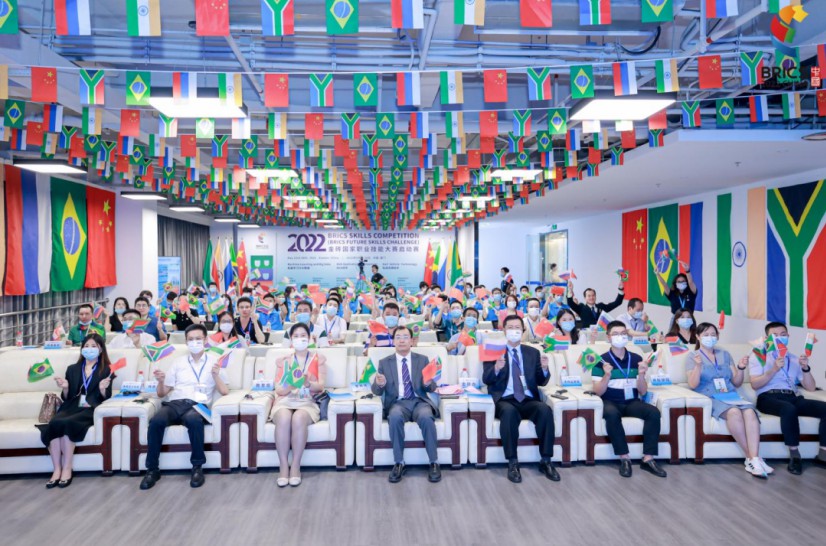
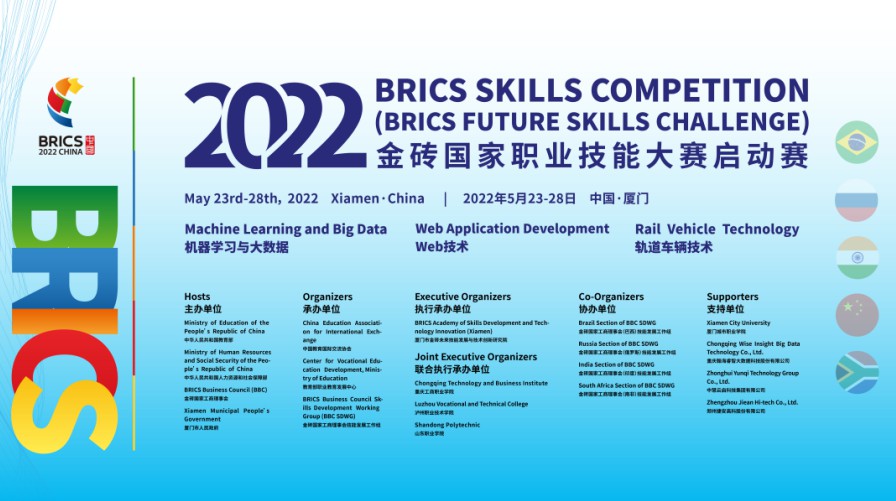
热门文章


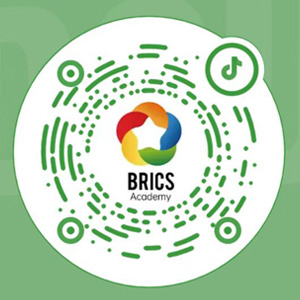
 闽ICP备12331232468号-1
闽ICP备12331232468号-1